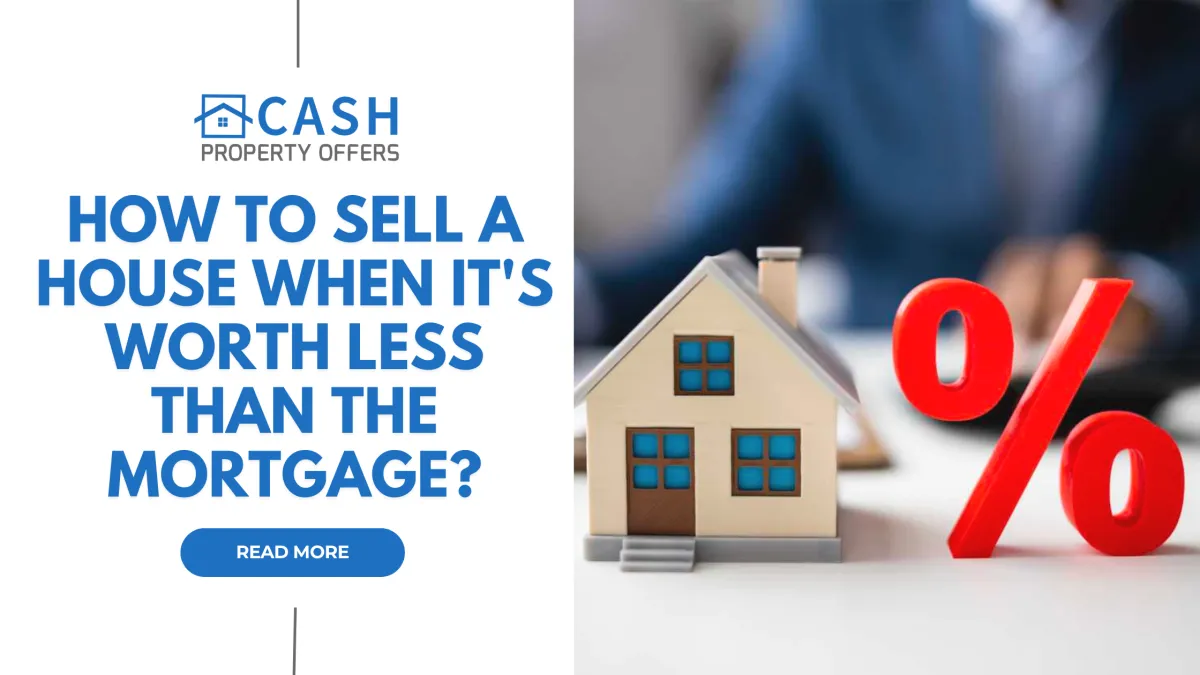Frequently Asked Questions
Maybe you have a few questions. That’s okay; most people do. So here’s a quick collection of some of the questions people ask us… along with our answers. If you still have a question, don’t hesitate to contact us (or give us a call) and we’ll be happy to answer it for you.
Q: How do you determine the price to offer on my house?
A: Great question. We’re not agents, and we don’t list houses. We are professional home buyers: We buy houses Columbia that meet our purchasing criteria. From there we may repair the house and resell it to another homeowner or keep it as a rental ourselves.
Q: Do you pay fair prices for properties?
A: Many of the houses we purchase are below market value (we do this so we can resell it at a profit to another home owner). We are looking to get a fair discount on a property. However, in our experience, many sellers aren’t necessarily expecting a large “windfall” on the property but rather appreciate that we can offer cash, we close very quickly (no waiting for financing), and no time or effort or expense is required on your part of fix up the property or pay agent fees. If that’s what you’re looking for and you see the value in getting your house sold fast… let’s see if we can come to a fair win-win price. (Besides, our no-obligation pricing commitment means that you do not have to move forward with the offer we give… but it’s good to know what we’re offering!)
[DOWNLOAD our free guide that walks you through the Pros and Cons (plus the cost and timeline) of selling your house to a real estate investor… plus learn the pros, cons, and costs of the other two alternatives… listing with an agent or selling it yourself. Head on over here download your free guide →]
Q: How do you determine the price to offer on my house?
A: Great question, and we’re an open book: Our process is very straightforward. We look at the location of the property, what repairs are needed, the current condition of the property, and values of comparable houses sold in the area recently. As you know, house values have taken a huge hit in the last 5 years and most areas still haven’t seen prices come back up. We take many pieces of information into consideration… and come up with a fair price that works for us and works for you too.
Q: Are there any fees or commissions to work with you?
A: This is what makes us stand out from the traditional method of selling your house: There are NO fees or commissions when you sell your house us. We’ll make you an offer, and if it’s a fit then we’ll buy your house (and we’ll often pay for the closing costs too!). No hassle. No fees. We make our money after we pay for repairs on the house (if any) and sell it for a profit (we’re taking all of the risk here on whether we can sell it for a profit or not, once we buy the house from you… the responsibility is ours and you walk away without the burden of the property and it’s payments… and often with cash in your hand).
Q: How are you different from a real estate agent?
A: Real estate agents list properties and hope that someone will buy them. The agent shows the properties to prospective buyers if there are any (the average time to sell a property in many markets right now is 6-12 months) and then take a percentage of the sale price if they find a buyer. Oftentimes, the agent’s commission is 3-6% of the sale price of your house (so if it’s a $100,000 house, you’ll pay between $3,000 – $6,000 in commissions to an agent). Agents provide a great service for those that can wait 6-12 months to sell and who don’t mind giving up some of that sale price to pay for the commissions. But that’s where we’re different: We’re not agents, we’re home buyers. Our company actually buys houses. We don’t list houses. Since we’re actually the one buying the house from you, and we pay with all cash… we can make a decision to buy your house within a couple days (sometimes the same day). Again, we make our living by taking the risk to buy the house with our own cash, repair the house, and market it ourselves to find a buyer (which is the hard part in this market).
Q: Is there any obligation when I submit my info?
A: There is absolutely zero obligation for you. Once you tell us a bit about your property, we’ll take a look at things, maybe set up a call with you to find out a bit more, and make you an all-cash offer that’s fair for you and fair for us. From there, it’s 100% your decision on whether or not you’d like to sell your house to us… and we won’t hassle you, won’t harass you… it’s 100% your decision and we’ll let you decide what’s right for you.
Want To See What We Can Buy Your House For?
Fill Out The Quick Form Below To Get A No-Hassle
No-Obligation All-Cash Offer
Listing vs. Selling To Us
Which route is quicker?
Which route is quicker?
Puts more cash in your pocket?
Has less hassle?
We buy houses in ANY CONDITION. There are no commissions or fees and no obligation whatsoever. Start below by giving us a bit of information about your property or call!
(803) 998-CASH
We respect your privacy. See our Privacy Policy.

How To Sell A House When It's Worth Less Than The Mortgage?
Introduction
One of the most challenging situations a homeowner can face is when their house is worth less than the outstanding mortgage balance. This predicament, often referred to as being "underwater" or "upside-down" on your mortgage, can be financially and emotionally distressing.
However, it's essential to understand that you're not alone in facing this issue. Many homeowners have successfully navigated this situation and found a way out. In this comprehensive guide, we will explore the various strategies and options available to sell a house when its market value is less than the mortgage amount.

Understanding the Underwater Mortgage Dilemma
The underwater mortgage dilemma is a challenging situation where a homeowner's outstanding mortgage balance surpasses the current market value of their property. This situation arises due to factors like market fluctuations, high-interest rates, low down payments, negative amortization loans, and unexpected financial hardships. It can lead to financial stress, limited mobility, credit issues, and emotional distress. However, understanding the causes behind it is the first step toward exploring potential solutions and making informed decisions to address this complex real estate issue.
Before delving into potential solutions, it's crucial to grasp the nature of an underwater mortgage and how it typically arises. An underwater mortgage occurs when the outstanding balance on your home loan exceeds the current market value of your property. This can happen for several reasons:
Market Fluctuations:
Sharp declines in the real estate market, often referred to as a housing market crash, can lead to a drop in property values. If you purchased your home during a market peak, a subsequent downturn could leave you underwater.
High-Interest Rates:
If you have an adjustable-rate mortgage (ARM) and interest rates rise significantly, your monthly mortgage payments can become unaffordable. This can make it challenging to keep up with payments and lead to default.
Low Down Payments:
Homebuyers who make minimal down payments (e.g., 3-5%) may find themselves underwater if property values decline even slightly after purchase.
Negative Amortization Loans:
Some mortgage products, such as option ARM loans, allow for minimum monthly payments that may not cover the full interest due. Unpaid interest gets added to the principal balance, causing it to increase over time.
Economic Downturns:
Unexpected job loss, medical expenses, or other financial hardships can make it difficult to meet mortgage obligations, potentially leading to default and an underwater mortgage.
The Emotional and Financial Toll
The emotional and financial toll of an underwater mortgage is substantial. It can be emotionally draining, as homeowners may feel trapped by a property they can't sell without incurring a loss. Financially, it can lead to a drain on resources, making it challenging to meet other financial goals and obligations.
Stress, anxiety, and the risk of foreclosure loom large. It's crucial for those facing this situation to seek professional advice, explore potential solutions, and consider the long-term financial and emotional well-being of their households.
Dealing with an underwater mortgage can take a toll on your emotional and financial well-being. Here are some of the challenges you may face:
Financial Stress:
The burden of paying a mortgage that exceeds your home's value can lead to financial stress and strain your budget.
Inability to Move:
Being underwater can trap you in your current home, making it challenging to relocate for job opportunities or personal reasons.
Credit Implications:
Late mortgage payments, default, or foreclosure can have a detrimental impact on your credit score and long-term financial prospects.
Limited Options:
Traditional home sales may not be feasible to the gap between the mortgage balance and the property's value.
Emotional Distress:
Living in a home that feels like a financial burden can cause emotional distress and strain relationships.
Exploring Your Options
Dealing with the challenge of selling a house worth less than the mortgage, homeowners should explore their options carefully. This situation can be daunting, but there are avenues to consider. Short sales, loan modifications, or renting out the property temporarily are potential solutions.
Additionally, seeking advice from real estate professionals and financial experts can provide valuable insights. Each homeowner's situation is unique, and a tailored approach is essential. By carefully exploring these options and seeking expert guidance, homeowners can navigate this challenging scenario more effectively.
Despite the challenges posed by an underwater mortgage, there are several options and strategies available to homeowners. Let's delve into these alternatives and explore how each one may be suitable for your unique circumstances.
Loan Modification
A loan modification involves negotiating with your lender to change the terms of your existing mortgage. This can include lowering the interest rate, extending the loan term, or even reducing the principal balance. Loan modifications aim to make your monthly payments more affordable and help you avoid foreclosure. This option is typically available if you are facing financial hardship, such as job loss or a significant reduction in income.
Refinancing
Refinancing involves replacing your current mortgage with a new one that offers more favorable terms. If you can qualify for a lower interest rate or more manageable monthly payments, refinancing can be an effective way to reduce your housing costs. However, this option may be challenging if you have low equity or poor credit to an underwater mortgage.
Short Sale
A short sale occurs when you sell your home for less than the outstanding mortgage balance, and your lender agrees to accept the proceeds as full satisfaction of the debt. While a short sale can be a viable option, it requires lender approval and can negatively impact your credit score. However, it is generally less damaging than foreclosure.
Foreclosure
Foreclosure is the process by which a lender takes possession of your home to non-payment. While it is a last resort, it's essential to understand the consequences of foreclosure, including damage to your credit and the potential loss of your home.
Renting Your Property
If you cannot sell your home for a price that covers your mortgage balance, renting it out may be a temporary solution. Becoming a landlord comes with its own set of responsibilities, but rental income can help you cover your mortgage payments while waiting for property values to recover.
Government Programs
Various government programs, such as the Home Affordable Refinance Program (HARP) and the Home Affordable Modification Program (HAMP), were established to assist homeowners facing financial difficulties. These programs offer refinancing and loan modification options for eligible borrowers.
Strategic Default
A strategic default is a deliberate decision to stop making mortgage payments even if you can afford them. This option is controversial and should be considered carefully, as it can have serious consequences, including foreclosure and credit damage.
Deed in Lieu of Foreclosure
A deed in lieu of foreclosure is an agreement between you and your lender in which you voluntarily transfer ownership of the property to the lender. While this option can help you avoid foreclosure, it may still have a negative impact on your credit.
Factors to Consider
When contemplating how to sell a house worth less than the mortgage, several critical factors demand consideration.
First, comprehending the local real estate market's conditions is essential, as they greatly impact pricing and demand. Second, assessing your financial situation, including the outstanding mortgage balance, is crucial. Third, exploring negotiation strategies with lenders or considering short sales can be advantageous.
Lastly, engaging a knowledgeable real estate agent can provide valuable guidance throughout the process. Weighing these factors carefully can help homeowners make informed decisions when facing this challenging circumstance.
When deciding how to proceed with an underwater mortgage, several critical factors come into play:
Financial Situation:
Assess your current financial status, including income, expenses, and debts. Consider your ability to continue making mortgage payments or explore options that alleviate financial strain.
Market Conditions:
Research local real estate market conditions to gauge whether property values are likely to increase or remain stagnant. This information can inform your decision to sell or hold onto your property.
Lender Cooperation:
Consult with your lender to explore available options and assess their willingness to work with you on loan modifications, short sales, or other alternatives.
Credit Impact:
Understand the potential impact on your credit score and long-term financial goals when considering various solutions.
Legal Advice:
Seek legal and financial counsel to fully comprehend the legal implications and potential tax consequences of your chosen course of action.
Conclusion
Navigating an underwater mortgage is undoubtedly challenging, but it's essential to remember that there are options available to homeowners facing this situation. The best course of action will depend on your specific circumstances, goals, and financial resources.
Whether you choose to pursue a loan modification, refinance, short sale, or another strategy, seeking professional guidance and staying informed about market conditions will be crucial to making the right decision for your future financial well-being. While the path to resolving an underwater mortgage may be complex, with careful planning and the right support, you can work towards a more secure financial future.
We buy houses in ANY CONDITION. There are no commissions or fees and no obligation whatsoever. Start below by giving us a bit of information about your property or call!
(803) 998-CASH
We respect your privacy. See our Privacy Policy.
4 fast and easy steps to sell your home for cash today.
Learn The Pros and Cons Of Selling Your House To Local
Professional Home Buyer– FREE Guide:

Download our FREE Guide here.
Or, you can always feel free to Contact us anytime if you have questions, want a no hassle Situation Evaluation, or want to just learn more about how we can help homeowners sell unwanted properties for cash.
Get the FREE Guide and then give us a call at 803-770-0679 and we’ll discuss what your home is worth and what we can offer to buy it for with our Cash Offer Program.
Cash Property Offers - All Rights Reserved | Privacy Policy | Terms of Use
Powered by ClientPro.ai
Sell My House Fast in Columbia SC
Sell my house fast in Greenville SC
Sell My House Fast Las Vegas Nevada
Sell My House Fast in Spartanburg SC
Sell My House Fast in Charlotte NC
Sell My House Fast in Fayetteville SC
Sell My House Fast in Lancaster SC
Sell My House Fast in Rock Hill SC
Sell My House Jacksonville
Sell My House Fast in Columbus GA
Sell my house fast Augusta GA
Sell my house fast Little Rock AR
Sell My House Fast in Canton OH
Sell My House Fast in Columbus GA
Sell My House Fast in Atlanta GA
Sell My House Fast in Columbia SC
Sell my house fast in Greenville SC
Sell My House Fast Las Vegas Nevada
Sell My House Fast in Spartanburg SC
Sell My House Fast in Charlotte NC
Sell My House Fast in Fayetteville SC
Sell My House Fast in Lancaster SC
Sell My House Fast in Rock Hill SC
Sell My House Jacksonville
Sell My House Fast in Columbus GA
Sell my house fast Augusta GA
Sell my house fast Little Rock AR
Sell My House Fast in Canton OH
Sell My House Fast in Columbus GA
Sell My House Fast in Atlanta GA






